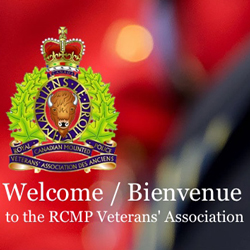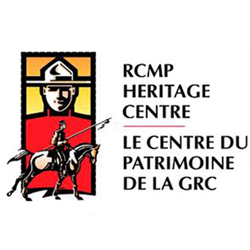Insp. John Richards
Inspector John Richards joined the North West Mounted Police (NWMP) as a Constable in 1883 and retired as a Inspector in the Royal North West Mounted Police (RNWMP).
The research into this member’s Personal file reveals that he had difficulty accepting orders from his line officers. Despite these conflicts and multiple demotions, he was eventually promoted to the rank of Inspector.
Even as an Officer, he continued his insubordination. Clearly, John Richards marched to a different drum.
Early Years
John Caldwell Richards was born May 20, 1860 at Hamilton, Ontario.[1] His father, John Richards, was a Captain during the Rebellion of 1837 and his mother’s father had fought at the Battle of Waterloo as a Captain. [2]
Joints The Force
John Richards engaged in the NWMP at Winnipeg on May 29, 1883. During the early years in the Force, John Richards was a Hospital Stewart and “served at different times as a pharmacists in the hospital at headquarters in Regina.”[3] As a Hospital Stewart, his promotions to Corporal (May 21, 1884) and Sergeant (April 1, 1885) can quickly.
Eventually, John Richards made the transition from a medical assistant to regular police duties.
In 1885, John Richards was a Sergeant at Fort Battleford. On May 2, 1885, he participated in the Battle of Cut Knife Creek and was commended for his distinguished service.[4]
 With his involvement in the Northwest Rebellion, John Richards was awarded the Northwest Rebellion Medal with the “Saskatchewan” clasp.
With his involvement in the Northwest Rebellion, John Richards was awarded the Northwest Rebellion Medal with the “Saskatchewan” clasp.
On July 8, 1887, he was promoted to the rank of Staff Sergeant and transferred to Golden, B.C. to replace Sergeant Major Thomas Lake (Reg. #13) who had committed suicide.
It would appear that working at Fort Steele wasn’t cut out for John. So, he requested to be reverted back to a Sergeant. This reduction in rank was effective on May 29, 1888.
The following year, John Richards was promoted back to the rank of Staff Sergeant on January 1, 1889.
On February 24, 1888, John Richards got into a fight in the Depot Senior NCOs Mess with Sergeant Jones. Consequently, he was charged and appeared before a Board of Officers. It was the opinion of the Board that John Richards be “severely reprimanded and recommended removed from the Division.” This relatively light sentence was attributed to John Richards’ good service.
John Richards’ career takes another sudden reversal. On August 12, 1891, he decides to attend a picnic outside his Detachment area and fails to seek permission to do so. In addition, he encourages three of his Constables to also attend the same picnic. In attending this picnic, John Richards decides not to wear his uniform which was in direct contravention to an Order issued by his line officer.
Unfortunately for John Richards, his actions of indiscretion were discovered. Consequently, he appeared before a Hearing of Officers. The charges laid against John Richards were:
- Absent from Duty without Permission;
- Encouraged three Constables to be Absent without Permission; and
- Disobey an Order not to wear his civilian clothes.
All charges were substantiated. The Hearing of Officers recommended to the Commissioner that John Richards be reduced from the rank of Staff Sergeant to Constable. The Commissioner supported the demotion.
John Richards felt that the penalties were too severe and immediately paid the sum of $60 to purchase his discharge from the Force at Maple Creek.
On October 25, 1891 at Saltcoats (Saskatchewan), John Richards married the woman who he was trying to impress at the picnic. Her name was Elizabeth Dunn and she was the daughter of a successful cattle rancher in the area.
With the cattle ranching not suiting his sense of adventure, John Richards reengaged in the NWMP on June 10, 1892 at the rank of a Constable.
Within a month of reengaging, he was promoted to the rank of Corporal on (July 23, 1892). On October 13, 1892, he was praised by the farming community in arresting a local horse thief who was subsequently convicted and received a two year sentence.
John Richards was promoted to Sergeant again on March 1, 1894. While as a Sergeant, he was commended for apprehending a ‘cattle-killer’ who was subsequently convicted. Again, he was praised by the farming community for his quick action. Two years later on August 13, 1896, he was promoted to the rank of Staff Sergeant.
On June 8, 1898 and being stationed at Fort Herchmer, John Richards signed a Letter of Complaint along with 21 other NCOs and Constables. These members complained about being asked to be ‘pack-animals’ by carrying 40 pounds of gold each and only armed with a revolver. These members felt that this delegated duty was outside their realm of police work. It was their opinion that this type of work should be undertaken by a special constable. Supt. Sam Steele received the Letter of Complaint and forwarded off to the Commissioner.
It was later reported in 1898 by Insp. Starnes to the Fred White (Comptroller for the NWMP) that he felt “confident that S/Sgt. Richards rather encouraged the men in their actions of supporting his Commanding Officer, this was shown by his signing the paper which you have in your possession, against all principles of discipline and by allowing the paper to go around the men.”
 Sometime later, Insp. Cortlandt Starnes (O.71) issued an Order about the transportation of gold.
Sometime later, Insp. Cortlandt Starnes (O.71) issued an Order about the transportation of gold.
According to Insp. Starnes, Sgt. William Haslett (Reg.#1649) discovered a copy of Starnes’ gold Order and noticed on the reverse of this order a message had been written by S/Sgt. Richards’ – “the Order had no effect as it had not gone through the proper channels.” Insp. Starnes reported the discovery to Supt. Charles Constantine (O.79) and Supt. James Walsh (O.7) but both declined to do anything about it.
On June 28, 1898, John Richards was the Acting Sergeant Major and in charge of Dawson City Town Station. Apparently, a dispute arose between some newly arrived miners. When the matter was brought to Supt. Walsh – he referred the matter to John Richards. According to John Richards’ account, he tried to arbitrate a fair separation of property. However, one of the American miners offered to bribe John Richards to arbitrate in his favour. Apparently, this American claimed to be a good friend of Supt. Walsh. John responded by stating that “I refused as it was an insult to my dignity, I have him a piece of my mind, using only dignified, courteous and moderate language. “ Without delay, the American headed off to see Supt. Walsh.
According to Insp. Starnes, the American miner was named Strickler and he came to the office to complain about how he had been treated by S/Sgt. Richards. In receiving this information, Insp. Starnes reported the circumstances to Supt. Walsh. Apparently, Walsh said that he wouldn’t stand for that behavior and ordered Insp. Starnes to have S/Sgt. Richards transferred out on the evening boat.
Insp. Starnes advised Richards’ of the transfer Order. According to Insp. Starnes’ account of the incident – “S/Sgt. Richards put in an appeal and also asked to be paraded before the Supt. (Walsh) but the Supt. Walsh would not see him or take notice of the appeal.” Instead, Walsh ordered S/Sgt. Richard to be transferred to the NWMP Tagish (BC) Post and was to report to Sam Steele. John Richards complied with the transfer order and reported to Sam Steele who subsequently transferred John Richards to the NWMP Headquarters in Regina.
 On September 17, 1898, the Winnipeg Free Press newspaper included an interview with Supt. James Walsh. In this article, James Walsh outlined the challenges of policing in the Yukon. One problem mentioned was an incident where an American citizen has been grossly insulted by a non-commissioned officer in charge of the Dawson Town Station. Walsh claimed that the matter was enquired into and the policeman was discharged.
On September 17, 1898, the Winnipeg Free Press newspaper included an interview with Supt. James Walsh. In this article, James Walsh outlined the challenges of policing in the Yukon. One problem mentioned was an incident where an American citizen has been grossly insulted by a non-commissioned officer in charge of the Dawson Town Station. Walsh claimed that the matter was enquired into and the policeman was discharged.
Being advised of this newspaper article, John Richards wrote a letter to Fred White and claimed that the subject of the newspaper was himself.
As John Richards pointed out to Fred White, “he was not charged nor was a hearing provided so that all evidence could be heard.” In addition, John Richard sought the assistance of a Regina solicitor and many individuals submitted petitions against this injustice. Fred White sought an explanation from both the Commissioner and Supt. Walsh.
On September 20, 1898, Supt. Walsh wrote to Fred White and stated “In reply to your enquiry regarding Sergeant Richards, I beg to say, that from information received from (Insp.) Starnes and citizens of Dawson, I consider him (Richards) not a good man for the Yukon services and sent him out to Steele, saying that he could either keep him or send him to Regina as he pleased. For his character, I will refer you to (Supt.) Steele and (Insp.) Starnes. He certainly is not a man that I would recommend to the Force. “
On December 12, 1898, Sir Wilfred Laurier (Prime Minister) wrote to Fred White outlining that he had received letters of concern over the treatment of S/Sgt. John Richards and wanted a full briefing on the matter.
After many months of exchanging of letters, Fred White outlined to the Commissioner that charges of insubordination should have been undertaken shortly after the incident occurred and John Richards should not have been ordered out of the Yukon. In view of the lapse of time, Fred White felt that it would not be desirable to proceed with any insubordination charges. However, Fred White concluded in his report by stating “the correspondence shows clearly the character of the man (Richards), as developed by laxity of discipline at Dawson but I fail to see what could be done short of giving him a trial on specific charges.”
In an effort to conclude this pending matter, the Commissioner ordered S/Sgt. Richards to be paraded before his Commanding Officer and be advised that “he must keep self under control and loyally support his superior officers.“
On July 23, 1901, he was promoted to Sergeant Major at “A” Division (Maple Creek).
Boer War
On December 10, 1901, Sergeant Major Richards sought and received permission to join the Canadian Contingent to South Africa. He was assigned to the Lord Strathcona Horse Regiment and travelled to South Africa to participate in the Boer War. Upon joining the Lord Strathcona Horse, he was promoted to the rank of Squadron Sergeant Major and over the next 14 months was placed in the Acting Regimental Sergeant Major position.
John Richards returned to Canada for a short period of time and thereafter returned to South Africa as a first Lieutenant in command of a Troop under Colonel Evans. This second tour only lasted for two months. For both tours of duty in South Africa, John Richards was highly commended in dispatches by Colonel Evans.
According to Colonel Sam Steele’s observations of John Richards’ performance in South Africa, Richards was “one of the best NCOs I have ever known in the field; first class in handling men; careful with his horses; brave and skillful; and much respected by his men.”
Based on his service in South Africa, John Richards was awarded the Distinguished Conduct Medal on October 18, 1903.
Upon returning from the Boer War, John Richards submitted a letter to Commissioner Bowen Perry requesting consideration on becoming a Commissioned Officer.
Based on this submission, the Commission wrote to the Comptroller – “I know him (Richards) to be an able, active and energetic NCO and thoroughly capable of performing the duties of an officer in the Force. I’m bound to add that since I have been Commissioner of the Force, I have had no fault whatever to find with him. He has shown a disposition to readily comply with all orders and to perform duties willingly. I am in hopes that when promoted it will make no change on this.”
On February 12, 1903, John Richards was promoted to the rank of Inspector with the approval of the Prime Minister. Upon receiving his Commission, John was transferred to Whitehorse in 1904.
In April 1904, a conflict developed between Supt. Arthur E. Snyder (O.58) and Insp. Richards. Apparently, Snyder took exception to the time it took John Richards to complete a patrol inspection. John Richards’ response was interpreted by Snyder to be insubordination. When Supt. Snyder complained to Fred White – Insp. Richards provided a written apology but the apology was not well received by Supt. Snyder. Fred White outlined to the Commissioner that “any repetition of insubordination on his (Richards) part will surely result in his retirement from Police service.”
Peace River-Yukon Trail
In 1905, officials in Ottawa decided that it would be appropriate to have a ‘back-door’ route to the Yukon. Instead of tasking the Canadian Royal Engineers to construct the travel trail, the Northwest Mounted Police were delegated to build the 375 mile route and it would be later known as the Peace River-Yukon trail. The trail specifications were to: cut through timber with a path width of eight feet; build bridges over creeks and swamps; and build rest homes every 30 miles.
“Whether or not the task was one that would normally be assigned to a police unit made little difference. Orders were orders, and the Force never claimed the right to question Government decisions.”’[5]
The Commissioner appointed Supt. Constantine to lead this project team and would be assisted by Insp. John Richards and 32 NCO and Constables. The construction started on June 15, 1905 and was finished by the summer of 1907. During this project, there were no reported problems with Insp. Richards.
Back To Depot Division
After finishing his assignment on the Peace River – Yukon trail project, John Richards was transferred to Depot. While at Depot, a Constable George Albert Denne (Reg. #4116) laid a complaint against Inspector Richards. It was alleged that Inspector Richards “committed an offence by namely tyrannical conduct towards his inferior – Constable Denne between June 1907 and May 1908.” Based on this information, Commissioner Bowen Perry ordered a Special Enquiry. At the end of the Special Enquiry, the Commissioner wrote to Fred White stating –
I had Insp. Richards here and he was paraded before at Orderly Room. I acquitted him practically of the charged but found that the difficulty had arisen from his familiarity with the men of his command. As (Supt.) Sanders put it in his report, he frequently forgot that he was an Officer and acted as an NCO of the Force.
Insp. Richards has had a great deal of trouble over family affairs and I was prepared to accept this as an explanation of much that occurred. Undoubtedly, since he has been at Wood Mountain, he has improved and he is having the work performed there more efficiently than under some of his predecessors.
In January 1908, John Richard’s wife admitted to him that she had been having an affair with William Mason who was a RNWMP teamster and a George Adams both of Wood Mountain. Shortly thereafter, his wife moved out and eventually moved to Victoria.
John Richards remained at Wood Mountain until 1912 and was transferred to Ottawa in 1913. Then on October 1, 1916, John Richards retired from the Force.
Advances in Life
On March 14, 1929, Insp. John Richards passed away at Hamilton Ontario. He is now buried at the Little Lake Cemetery in Peterborough Ontario.
[1] Ontario Death Record for John Caldwell Richards.
[2] Library Archives Canada – NWMP Personal File for John Caldwell Richards.
[3] Beahen, William and Horrall, Stan – “Red Coats on The Prairies: The North-West Mounted Police 1886-1900 (page 189)
[4] Turner, John Peter – “The North-West Mounted Police” – Volume II Page 179
[5] Fetherstonhaugh, R.C. – “The Royal Canadian Mounted Police” – page 145


 January 19, 2012
January 19, 2012 














